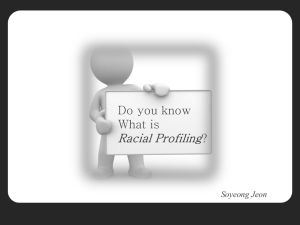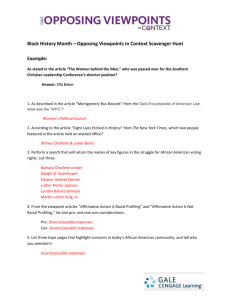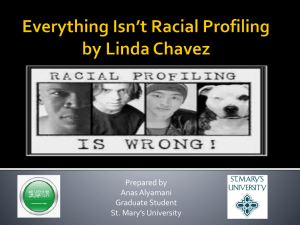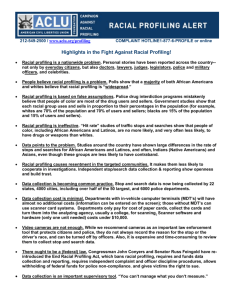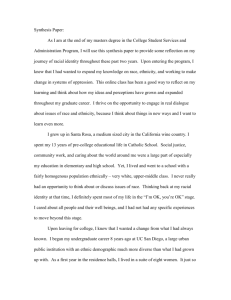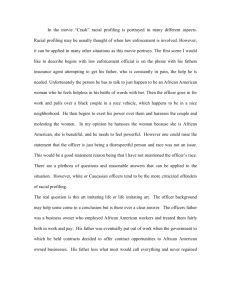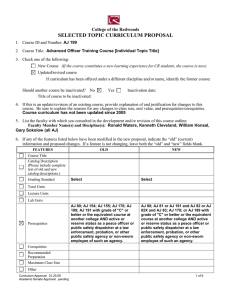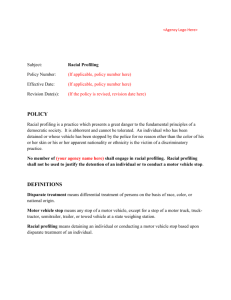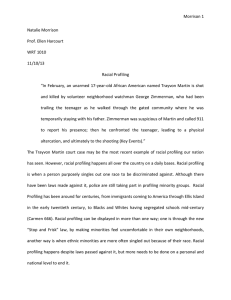Racial Profiling - NASW
advertisement
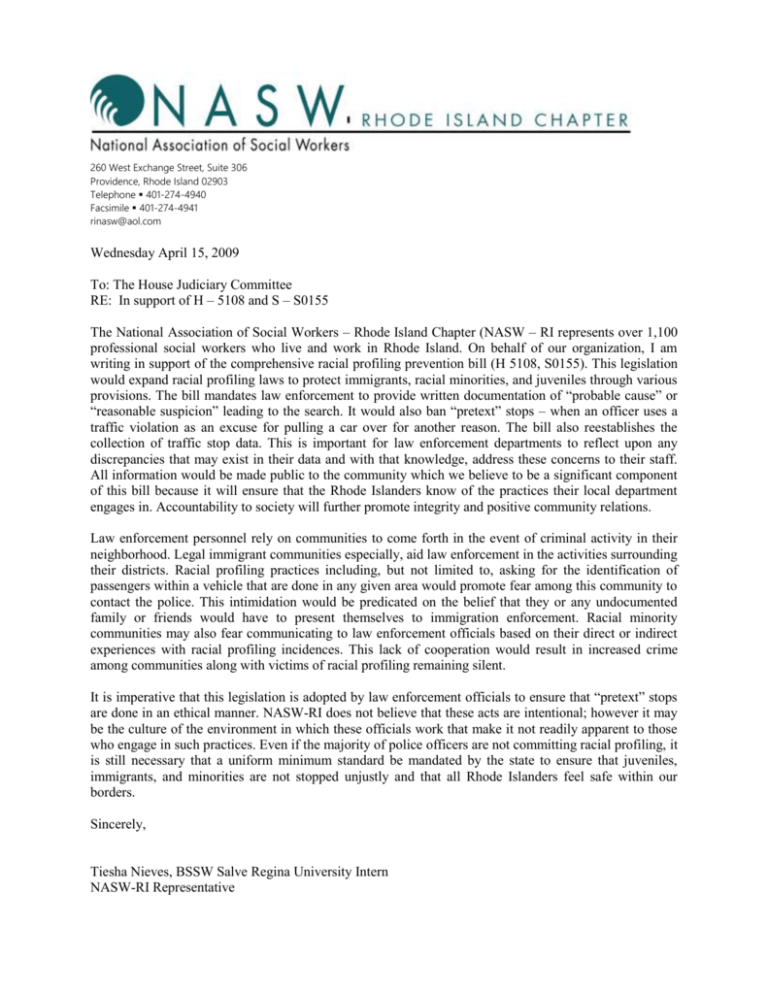
260 West Exchange Street, Suite 306 Providence, Rhode Island 02903 Telephone 401-274-4940 Facsimile 401-274-4941 rinasw@aol.com Wednesday April 15, 2009 To: The House Judiciary Committee RE: In support of H – 5108 and S – S0155 The National Association of Social Workers – Rhode Island Chapter (NASW – RI represents over 1,100 professional social workers who live and work in Rhode Island. On behalf of our organization, I am writing in support of the comprehensive racial profiling prevention bill (H 5108, S0155). This legislation would expand racial profiling laws to protect immigrants, racial minorities, and juveniles through various provisions. The bill mandates law enforcement to provide written documentation of “probable cause” or “reasonable suspicion” leading to the search. It would also ban “pretext” stops – when an officer uses a traffic violation as an excuse for pulling a car over for another reason. The bill also reestablishes the collection of traffic stop data. This is important for law enforcement departments to reflect upon any discrepancies that may exist in their data and with that knowledge, address these concerns to their staff. All information would be made public to the community which we believe to be a significant component of this bill because it will ensure that the Rhode Islanders know of the practices their local department engages in. Accountability to society will further promote integrity and positive community relations. Law enforcement personnel rely on communities to come forth in the event of criminal activity in their neighborhood. Legal immigrant communities especially, aid law enforcement in the activities surrounding their districts. Racial profiling practices including, but not limited to, asking for the identification of passengers within a vehicle that are done in any given area would promote fear among this community to contact the police. This intimidation would be predicated on the belief that they or any undocumented family or friends would have to present themselves to immigration enforcement. Racial minority communities may also fear communicating to law enforcement officials based on their direct or indirect experiences with racial profiling incidences. This lack of cooperation would result in increased crime among communities along with victims of racial profiling remaining silent. It is imperative that this legislation is adopted by law enforcement officials to ensure that “pretext” stops are done in an ethical manner. NASW-RI does not believe that these acts are intentional; however it may be the culture of the environment in which these officials work that make it not readily apparent to those who engage in such practices. Even if the majority of police officers are not committing racial profiling, it is still necessary that a uniform minimum standard be mandated by the state to ensure that juveniles, immigrants, and minorities are not stopped unjustly and that all Rhode Islanders feel safe within our borders. Sincerely, Tiesha Nieves, BSSW Salve Regina University Intern NASW-RI Representative
